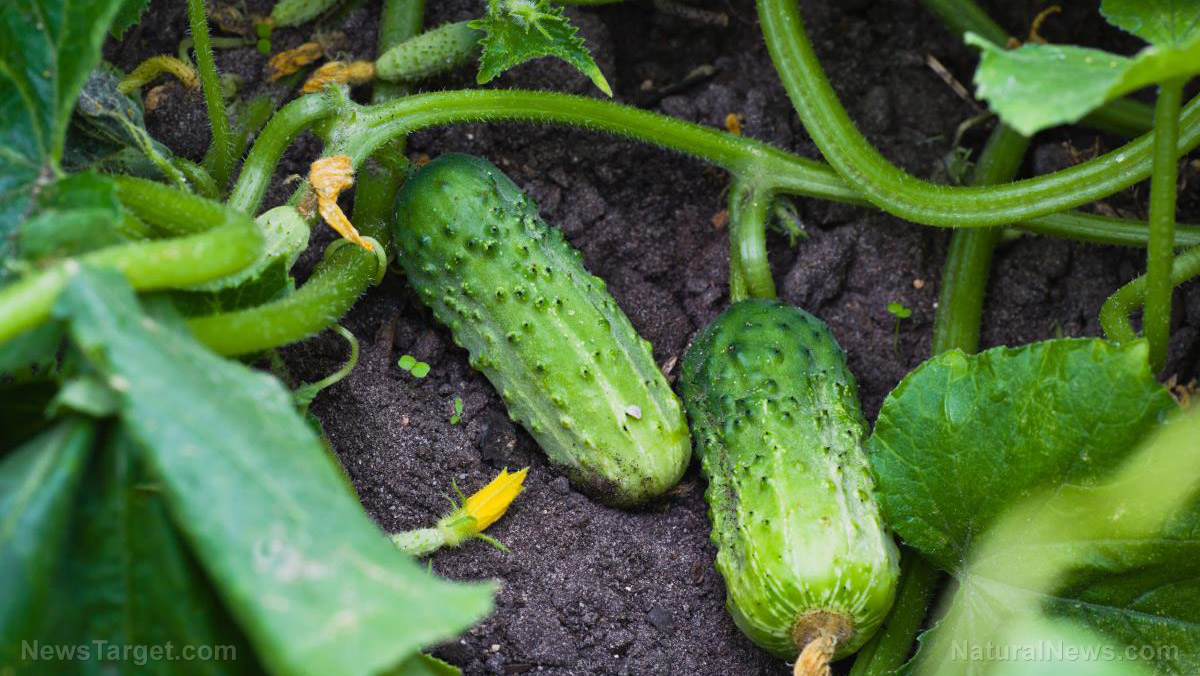
But maintaining a garden means you also need to know natural and effective ways to protect your plants from garden pests. (h/t to BeansBulletsBandagesAndYou.com)
Why chemical pesticides are bad for your garden
Pesticides are used to eliminate organisms that can invade or damage crops.
There are different kinds of pesticides, such as:
- Fungicides, which are used to protect harvested crops and seeds from fungal rot.
- Herbicides, also called weed killers, which are used to boost crop yields.
- Insecticides, which are used to eliminate insects and their eggs.
Ideally, pesticides should destroy its target pest without causing negative side effects to humans, other plants, animals and the environment.
But while some commonly used pesticides come close, they are far from perfect. Using pesticides in your home garden can still negatively affect your health and the environment, which you may not want to risk when SHTF.
Synthetic pesticides are created in industrial labs while organic pesticides, or biopesticides, are made using naturally occurring chemicals.
Avoid using the classes of synthetic pesticides detailed below to keep your crops safe for human consumption and to avoid harming the environment.
- Carbamates are insecticides that affect the nervous system like organophosphate. However, the former is less toxic and their effects wear off more quickly.
- Glyphosate, commonly called Roundup, is a herbicide used to farm genetically modified crops (GMOs).
- Neonicotinoids are insecticides used on leaves and trees. The EPA is studying neonicotinoids because they cause harm to bees.
- Organophosphates are insecticides that target the nervous system. Some organophosphates are banned or restricted because of toxic accidental exposures.
Organic and sustainable methods of insect control
Companion planting
Companion planting involves growing certain kinds of plants in your garden that offers benefit to your other crops. Some plants can keep out certain insects from your garden.
For example, marigolds and nasturtium help repel squash pest insects. Meanwhile, borage, which deters tomato hornworm and cabbage moth caterpillars, should be planted near strawberries and tomatoes.
Physical methods
Physical methods are cheaper than buying various products, but they often require more of your time and energy.
- Hand-picking – Some bugs that are big enough can be easily picked off of your plants, but this may not be the best option if you're busy with work or other tasks around your homestead. You may also want to consider other options if you have health conditions that may prevent you from working in your garden for too long. (Related: Home gardening tips for preppers: Get rid of squash beetles with this item from your pantry.)
- Neem oil – Neem oil tastes bitter and smells like a mixture of garlic and sulfur. It helps repel garden pests like insects, mites and fungi-like powdery mildew. You can spray neem oil on plants for pest control because it won't harm beneficial insects like honeybees and ladybugs. Neem oil is also safe to use around humans and pets.
- Row covers – Row covers are less labor-intensive. Floating row covers are light, air- and somewhat light-permeable strips of material that you can put over the plants to physically block the insects. Using row covers at night also helps deter rabbits. Note that row covers shouldn't be used on flowering species that need flying insect pollinators. Make sure row covers are light enough to not crush your crops, but are tight enough to keep out flying insects.
Recipe for homemade insect spray
Try the recipe below to make a natural insect spray for your home garden.
Ingredients:
- 4 cups water
- 2 garlic cloves, mashed or chopped
- 1/2 onion, sliced thinly
- 1/4 teaspoon cayenne
- 1/4 bar of soap, grated
Steps:
- Boil the water in a pot along with the cayenne, garlic and onion. Add the grated soap and stir.
- Remove the pot from heat when bubbles start to rise or after 2 minutes.
- Cover the pot, then let the mixture sit for 20 minutes.
- Strain the mixture before using.
For small applications, store the mixture in a sprayer bottle.
To cover larger areas, use tank sprayers that are pressurized by pumping air. Use a tank sprayer with a long wand attachment so you don't hurt your back while spraying low plants.
Tips on using sprays
You can tweak the homemade spray by using other ingredients you might have at home, like chopped hot pepper if you don't have cayenne.
Replace the grated soap with liquid soaps or dish detergent. The soap helps the mixture to stick to the leaves since some plants wax their leaves to shed water and deter fungi, but this also sheds homemade insect spray without soap.
Use these natural methods to help your crops thrive and keep your home garden free from pests and harmful chemicals.
Sources include:
BeansBulletsBandagesAndYou.com
Please contact us for more information.






















